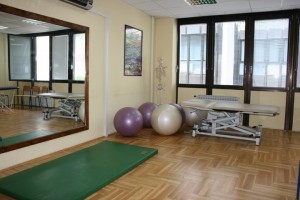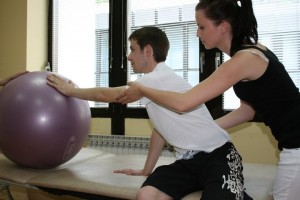
Clinical practice includes 735 hours training and it is a compulsory part of the study curriculum.
Clinical practice I in the first year of study includes 90 hours of training and it serves as an introduction to physiotherapy: the scope of work and the role of a physical therapist, the role of a physical therapist in modern physiotherapy; physiotherapy approaches and their differences, physiotherapy assessment – subjective examination, case history, observation, palpation , measurements and tests in physiotherapy, anthropometric measures, measuring aerobic capacity and endurance , assessment of integrity and mobility of joints, measuring the range of motion; measuring muscle strength – manual muscle test, dynamometry, testing isometric and isokinetic muscle strength; posture assessment; pain assessment; assessment of skin integrity, reflex assessment activities; assessment of activities of daily living and instrumental activities of daily living; estimating gait, locomotion and balance, ergonomic and biomechanical assessment, evaluation of the use of adaptive and auxiliary equipment; specific physiotherapy methods and assessment systems.

Clinical practice II during the second year of study includes 165 hours and includes physical factors in therapy; electrodiagnostic procedures, therapeutic exercises as part of physical therapy process, manual therapy techniques, respiratory therapy. Students are also introduced to the functional training in self-care and home management within the physiotherapy process; application of aids, orthoses, adaptive, protective, supportive devices and equipment; use of facilitation techniques , inhibition and stimulation based on the physical therapy concepts.
Clinical practice III includes 480 hours and covers specialty areas of physiotherapy – cardiology and pulmonology, orthopedics, traumatology, rheumatology, neurology, pediatrics, oncology, gynecology and obstetrics, sports, the amputees, the people with sensory and mental disabilities, and the elderly people.





